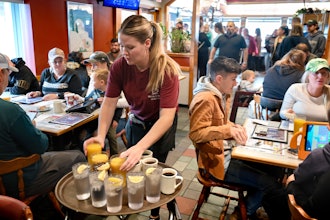In celebration of Manufacturing Day (October 7, 2016), we thought we’d take a closer look at the significance of this day and all that it represents. More specifically, what challenges led to the creation of Manufacturing Day, and how can it – or other best practices – potentially overcome them?
First though: What is Manufacturing Day, and why is it so important? This annual tradition is a one-day event, celebrated on the first Friday of each October, that is designed to shine a light on the industry as a whole and highlight its many attributes.
At the same time, Manufacturing Day seeks to address and overcome one common misconception that still plagues the industry: The widespread view that manufacturing is not a desirable industry to work in. For proof, consider a recent study from Deloitte and the Manufacturing Institute that found that only 37 percent of respondents said they would encourage their children to pursue a manufacturing career.
This statistic is shocking, but what’s worse, it only speaks to half of the growing skills gap problem in manufacturing. Not only are younger job seekers not considering careers in manufacturing, but a large number of Baby Boomer employees are expected to exit the workforce.
The numbers offer proof: According to the same study, 84 percent of executives agree that there is a talent shortage in U.S. manufacturing, and over the next decade, the skills gap will likely result in two million manufacturing jobs going unfilled.
To look at one final poll from the Deloitte and the Manufacturing Institute report, 78 percent of executives indicated that they believed it would affect their ability to implement new technologies and increase overall productivity. And a recent survey commissioned by Kronos Incorporated and conducted online by Harris Poll found that 50 million Americans have limited to no knowledge about the manufacturing industry.
In other words, the skills gap is real – and can have an adverse effect on manufacturers’ abilities to compete and grow.
It’s becoming a global challenge, too. Dr. Robert Lieb, professor of supply chain management at Northeastern University, recalls a story where one of his students sincerely asked if the U.S. even had manufacturing. It’s evidence of a growing global view that paints a bleak picture for the future of U.S. manufacturing and our ability to compete with other countries – unless we can do something to reverse the trend now.
The Opportunity Manufacturing Day Represents
“Manufacturing Day is so important because as a whole, the entire industry is not that well understood by the general public or educators at the middle school and high-school levels,” says Dr. Lieb. “For example, when students get to college, they don’t always understand what manufacturing can offer them in terms of a potential career choice.” As a result, not enough of them are applying for jobs in manufacturing, and the skills gap continues to grow.
All of this makes Manufacturing Day even more important. This day is the chance for leading manufacturers to host students, teachers, parents, job seekers and anyone else interested in learning more about modern manufacturing technology and the many fulfilling jobs that await.
Manufacturing Day initiatives also seeks to partner with other programs that connect with children as early as possible. For example, manufacturing representatives often pair up with STEM programs (science, technology, engineering, and mathematics) to demonstrate how manufacturing jobs use these skills each and every day.
Colleges and universities can – and should – also play a role in helping students prepare for careers in manufacturing. For example, Northeastern University gives students the unique opportunity to get out and work in manufacturing as part of its storied co-op programs. They have the chance to experience firsthand the complexities of manufacturing operations, everything from procurement to transportation to logistics and everything in between.
“We want to create the opportunity for students to hone their problem-solving skills using real-world situations,” explains Dr. Lieb. “Such experiences put learning into action and gives students the chance to see diverse, rewarding career options that exist in manufacturing and supply chain.”
Help for a Vital Industry
When you consider that manufacturing touches every aspect of our lives – everything from food to medicine to clothing and much more. This makes it so important for manufacturers to do all they can to tighten the skills gap.
So this Manufacturing Day, consider creative solutions to attract a new generation of skilled workers capable of helping manufacturers grow, compete, and achieve better business results – now and into the future.
Alexander Frazier is the Manager of the Manufacturing Practice Group at Kronos Incorporated.






















